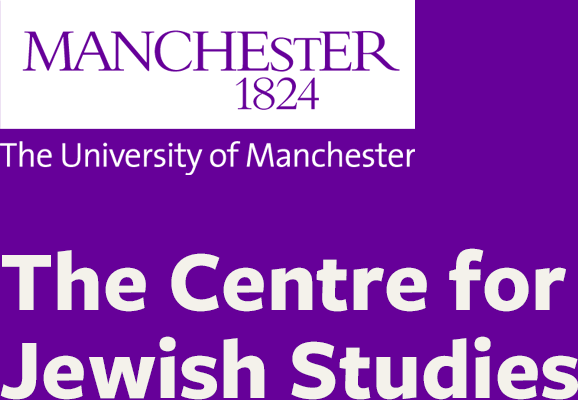About the Centre
Overview of the Centre
The Centre acts as a focus for Jewish Studies at the University of Manchester and also as the hub for the Northern UK Jewish Studies Partnership. Administered in the Dept of Religions and Theology, it is home to a number of outstanding academics in the fields of Bible, Dead Sea Scrolls, rabbinic Judaism, Jewish Thought, Holocaust Studies, ancient, medieval and modern Jewish History, Film Studies, Jewish/Non-Jewish Relations, and Israel Studies. The Centre attracts research students from around the world on a wide variety of PhD topics, as well as post-graduate researchers. Our activities include research seminars, the Sherman Lectures in Jewish Studies and the Bogdanow Lectures in Holocaust Studies. You can follow us on Twitter, via the news blog or subscribe to the emailing list.
Activities
The Centre for Jewish Studies at the University of Manchester is one of the leading institutions of its kind in Europe.
We offer undergraduate degree programmes that include Jewish Studies components, and a wide variety of Jewish studies related courses at undergraduate level, as well Jewish studies related courses at postgraduate level.
We can advise on funding opportunities and and offer expert supervision and specialist resources for PhDs in the area of Jewish Studies.
We run a programme of research seminars, the Sherman Lectures in Jewish Studies, and the Bogdanow Lectures in Holocaust Studies.
Current major research projects which are externally-funded include Regional Hub in Jewish Studies (anonymous European Jewish Foundation) and Rylands Hebraica Catalogue (anonymous European Jewish Foundation).
Previous major projects include Disclosing Post-Holocaust and Deportation Exhumations (British Academy), The Doubting Jew: Atheism and Jewish Thought (AHRC), The Samaritan Correspondence of Dr Moses Gaster: Texts, Analysis, and Contexts (British Academy), and Moses Gaster: Eclectic Collector (British Academy), Jewish Engagement with Darwinism (Leverhulme), Ottoman Bible Commentary (Leverhulme/John Rylands Research Institute), Polish Jewish Conversation (anonymous European Jewish Foundation), Anti-Semitism and National Identity in Hungarian film (Leverhulme), Corpses of Mass Violence and Genocide (European Research Council),Cosmopolitanism and the Jews (AHRC), Typology of Anonymous and Pseudepigraphic Jewish Literature in Antiquity (AHRC), the Rylands Cairo Genizah Project (AHRC and other funders), the Agunah Research Unit (Leverhulme and other funders), the Manchester Refugees project (Association of Jewish Refugees), and Jewish Built Heritage (AHRC).
The Centre is associated with three peer reviewed journals: Melilah: The Manchester Journal of Jewish Studies (online and Gorgias Press) and the Journal of Semitic Studies (Oxford University Press), and the Leo Baeck Year Book (Oxford University Press).
The John Rylands University Library has internationally significant holdings and primary sources in Jewish religion, culture, society and history. In particular, its collection of Hebrew manuscripts (many of which once belonged to Moses Gaster) is surpassed in the UK only by Oxford, the British Library and Cambridge. The Centre also boasts the Bill Williams Library for Modern Jewish Studies.
Manchester Jewish Museum is packed with archival material awaiting the attention of researchers, including extensive oral testimony and photographic collections.
History
Manchester has a long and distinguished record in the research and teaching of Jewish Studies, boasting such eminent scholars as Alexander Altmann (who established the Institute for Jewish Studies in 1941), James Barr, Edward Ullendorff, Meir Wallenstein (who chaired the Tarbut Society and established the journal Melilah), and Leon Yudkin. Biblical Hebrew was taught by the Talmudic expert Tobias Theodores from 1866. Manchester was amongst the earliest to teach modern Hebrew from the 1930s, published Melilah, one of the first UK journals of Jewish Studies in modern Hebrew, in the years 1944-55, and was the first UK university to offer a BA degree in modern Hebrew (one of the two first graduates was David Patterson in 1949).
The University has long-established links with the local Jewish community, which dates back to the 1780s and is the largest in the UK outside London. Over the years prominent Jewish scholars and scientists have taught at the University. Chaim Weizmann lectured on chemistry and Weizmann's contemporary, the eminent philosopher Samuel Alexander, introduced him to Balfour. Sir Lewis Namier, one of the greatest of modern English historians, was active in assisting Weizmann in the Zionist movement.
The Centre for Jewish Studies was established in 1996 when the existing provision was strengthened by the creation of the Alliance Chair in Modern Jewish Studies. In 1997, Prof. Bernard Jackson was appointed to the Chair, and became Co-Director of the Centre, with Prof. Philip Alexander, FBA. Prof. Jackson retired in 2009 and was succeeded by Professor Alexander Samely. Prof. Alexander retired in 2011 and was succeeded by Professor Daniel Langton.
Finding us
We are located in the Samuel Alexander Building (Building 67 on the Campus Map). See directions. See also the list of local accommodations. If you wish to be kept informed of the Centre's activities and events, please subscribe to the emailing list.

